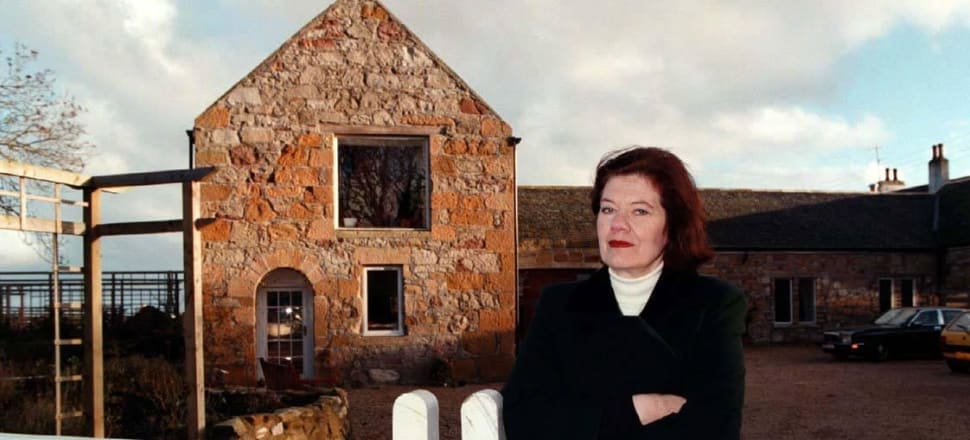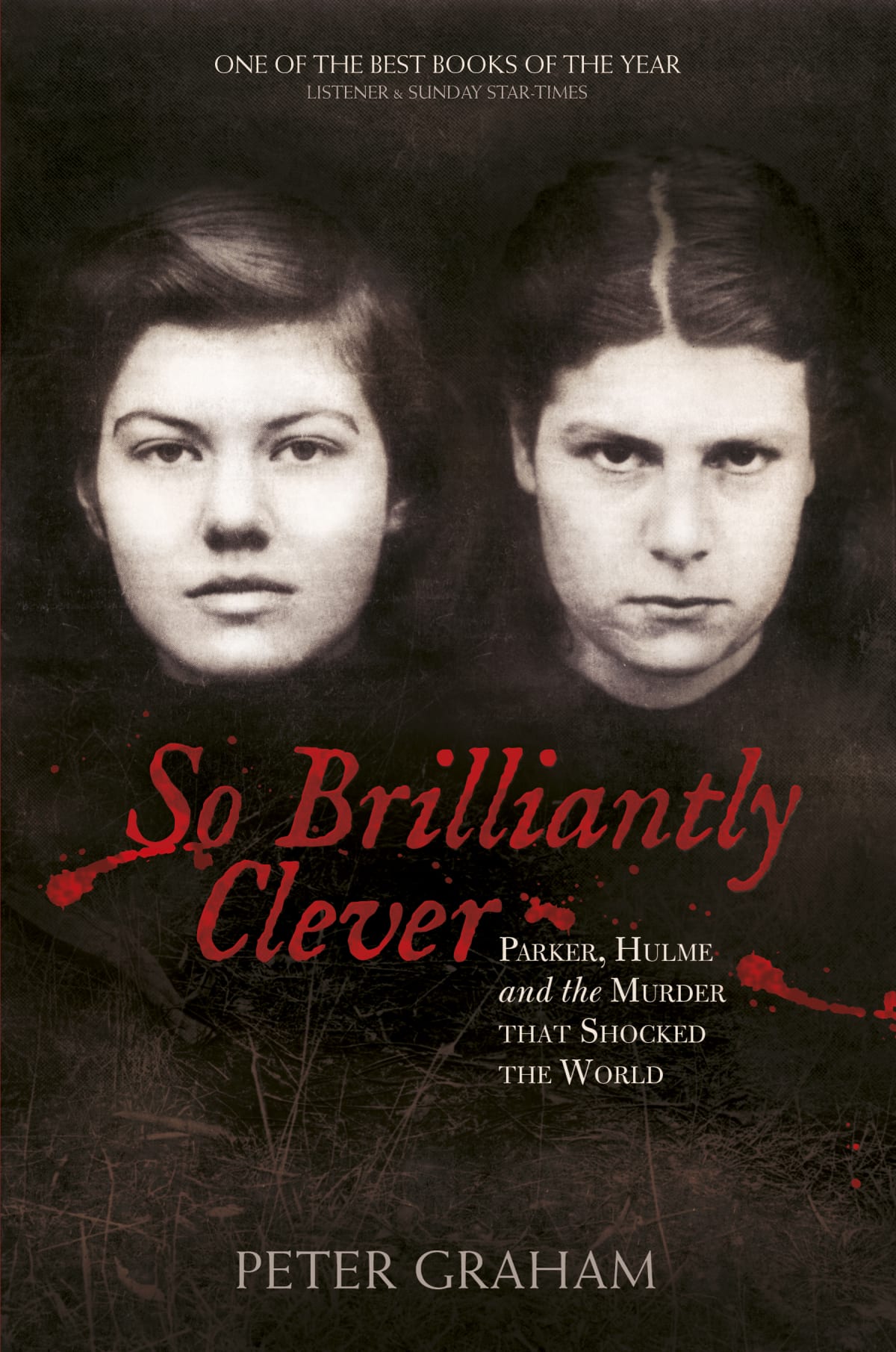
On the passing of Anne Perry
I heard on the news that Anne Perry née Juliet Hulme had died in the United States at the age of 84. Then I began receiving texts and messages, almost as if a friend had passed away, or a member of the family.
I never met Perry, although not for want of trying, but when I was researching and writing So Brilliantly Clever, my book on what is usually called "the Parker Hulme murders", I probably knew more about the life of Juliet Hulme – or a large chunk of it – than anyone alive. Every detail of the murder by Juliet and her friend Pauline of Pauline’s mother Honorah Parker held a grisly fascination. (Incidentally, the murder weapon was not, as is often said, a brick in a stocking. It was a half brick wielded by hand by both girls in turn, the stocking having broken at the first swing.)
Even more fascinating than the murder was the absolute absence of remorse. My favourite Juliet anecdote took place after she and Pauline had been convicted and were being driven back to Paparua Prison. The young policewoman escorting them was shocked, as she was meant to be, when Juliet said to Pauline in a stage whisper, "The old girl took a bit more killing than we thought."
When the officer took them to task, Juliet turned on her, jeering, "Oh, aren’t we the perfect little policewoman!"
They left a piece of paper where it had to be found: a list of names of another eight people they intended to kill at the first opportunity, including school teachers and policemen involved in the case.
As I said in my book, if Juliet and Pauline really were psychotic, or afflicted with some lesser mental disorder, the tragedy was that they had become individually and as a pair so odious that hardly anyone could give them a second’s sympathy.
In July 1994 Anne Perry, by then a well-known writer of murder mysteries, often in a Victorian setting, was outed as the teenage murderer Juliet Hulme. Her publisher saw the commercial possibilities of the disclosure. I accumulated a file of newspaper and magazine clippings – self- justificatory interviews mostly – that coincided with the release of each new book from then on.
It was obvious her publicity was expertly managed and, as I later heard, well lawyered. A typical example was the line fed to the British novelist Sebastian Faulks. Writing in The Guardian, Faulks duly reported that "confused by high doses of medication [Juliet had] provided a brick with which Pauline killed her mother". A writer from The Times spelled out the big selling point. "Perry has an insight that few crime writers can boast of. Perry committed murder in 1954. Her name back then was Juliet Hulme, played by Kate Winslet in the film Heavenly Creatures."
By March 2006 Perry had sold 20 million books worldwide. On British television she shared her thoughts on redemption with fellow crime writer Ian Rankin: "Redemption comes when you decide you want to become the person you want to be."
In August 2009 I was in Scotland and wanted to see where Perry lived in the village of Portmahomack, less than 40 miles from Beauly, where I was staying. I was curious about the old stone barn described by a visitor as "an elegantly renovated pseudo-Italian mansion and garden" with an ornamental fountain, Italian chandeliers, and gold taps in the guest bathroom.
I had been given Perry’s phone number by a friend of her father who kept in touch with her. I thought a cold call from a stranger from New Zealand wanting to dig up the past would not be welcome, and in the unlikely event that she did speak to me permission would be hedged with terms and conditions I could not accept. I was not looking forward to the phone call but thought it would be spineless not to give it a go.
The voice on the telephone was clipped and chilly. Perry became distinctly testy when I explained that I was looking into the murder of Honorah in more depth than previous writers and would like to speak to her about it.
"You know nothing about it!” she snapped.
"Perhaps you could fill in the gaps in my knowledge," I said politely.
"I have no wish to speak to you on this or any other subject," she said and hung up.
Soon after I returned to New Zealand my publisher, Mary Varnham at Awa Press, received a letter from Perry’s literary agent, Meg Davis. It was a request – perhaps a demand – that Awa Press send a copy of my manuscript for her to read, in order "to save trouble and expense involving lawyers further down the track". Mary ignored the veiled threat. Happily, there was neither trouble nor expense after So Brilliantly Clever came out. I like to think it contained no actionable defamation.
At the book’s launch in 2011 a friend called me aside and fished out of his jacket pocket a crumpled bit of paper. I knew he had been at Medbury School with Jonathan Hulme, Anne Perry’s brother, and they stayed in touch. It was a message ostensibly from Jonathan, who knew the book was about to go on sale. "I only hope [Peter’s] vocabulary includes the words compassion and forgiveness," it read. I am convinced the message was from Perry herself.
Peter Graham is the author of So Brilliantly Clever, the best account of the Parker-Hulme murder of 1954. The audiobook was released worldwide on April 1, and the print and ebook editions are available online at awapress.co.nz. Perry, then Juliette Hulme, is on the left of the cover (below), with Pauline Parker. The girls killed Pauline's mother. Agnes Graham was the first to see them after the murder. She told the coroner, "The accused Hulme said, 'It's her mother. She's hurt. She's covered with blood. Please would somebody help her.' She was almost hysterical. The other girl was quieter; and very white. They both had a lot of blood on them...The girl Parker said the deceased hit her head on a brick as she fell. The accused Hulme said, 'I'll always remember hearing her head banging.'"








